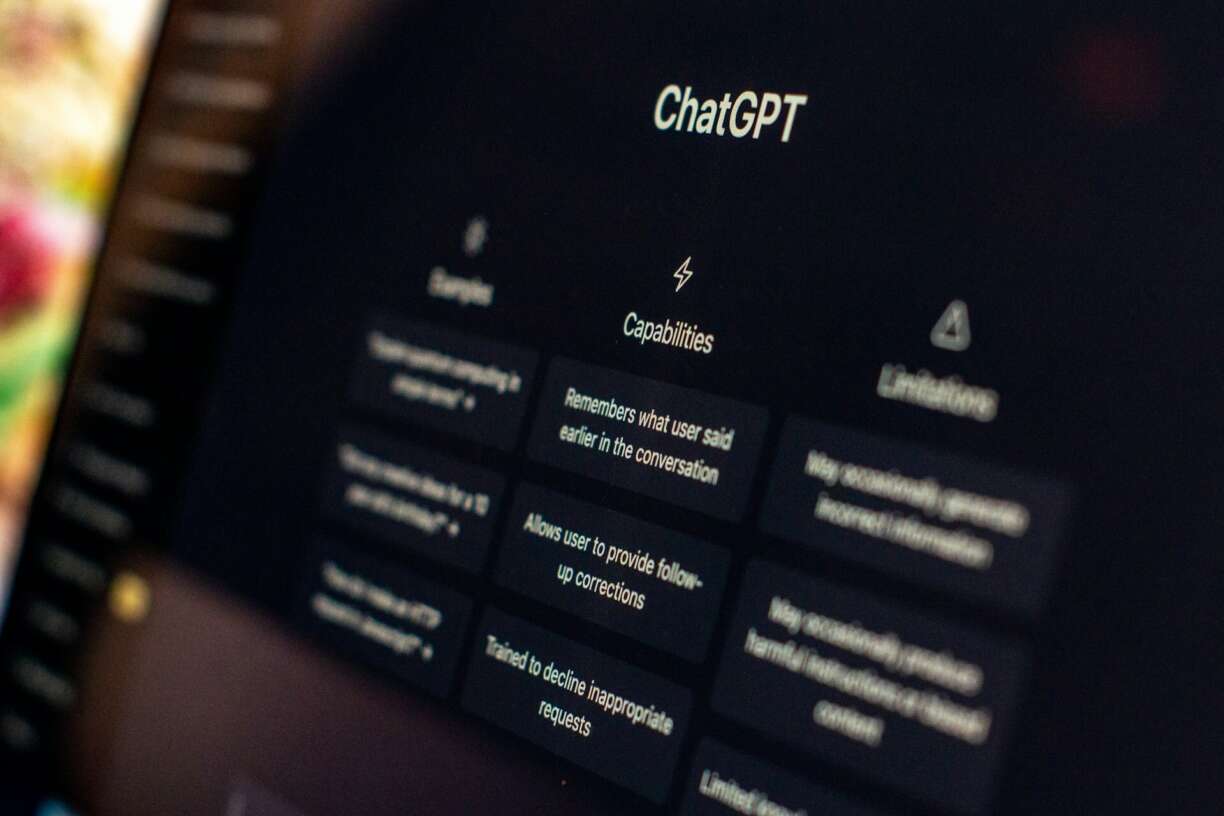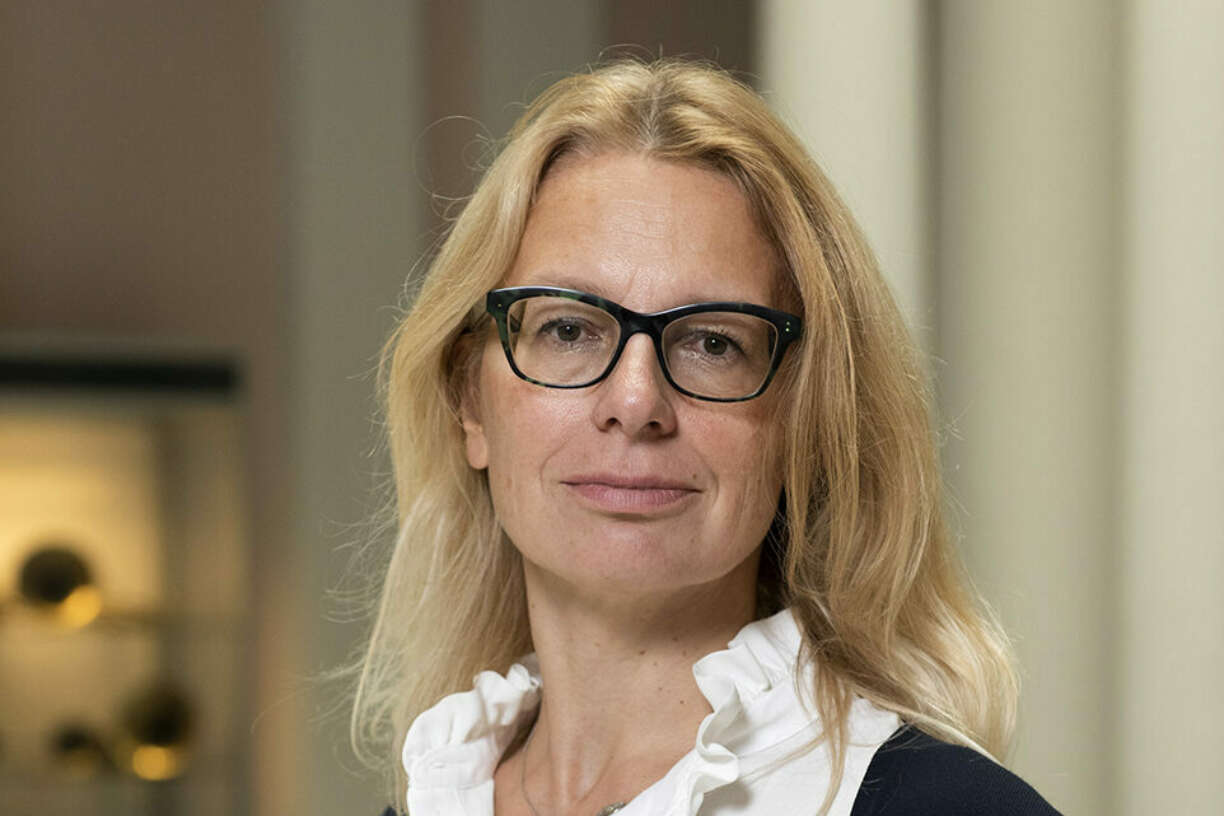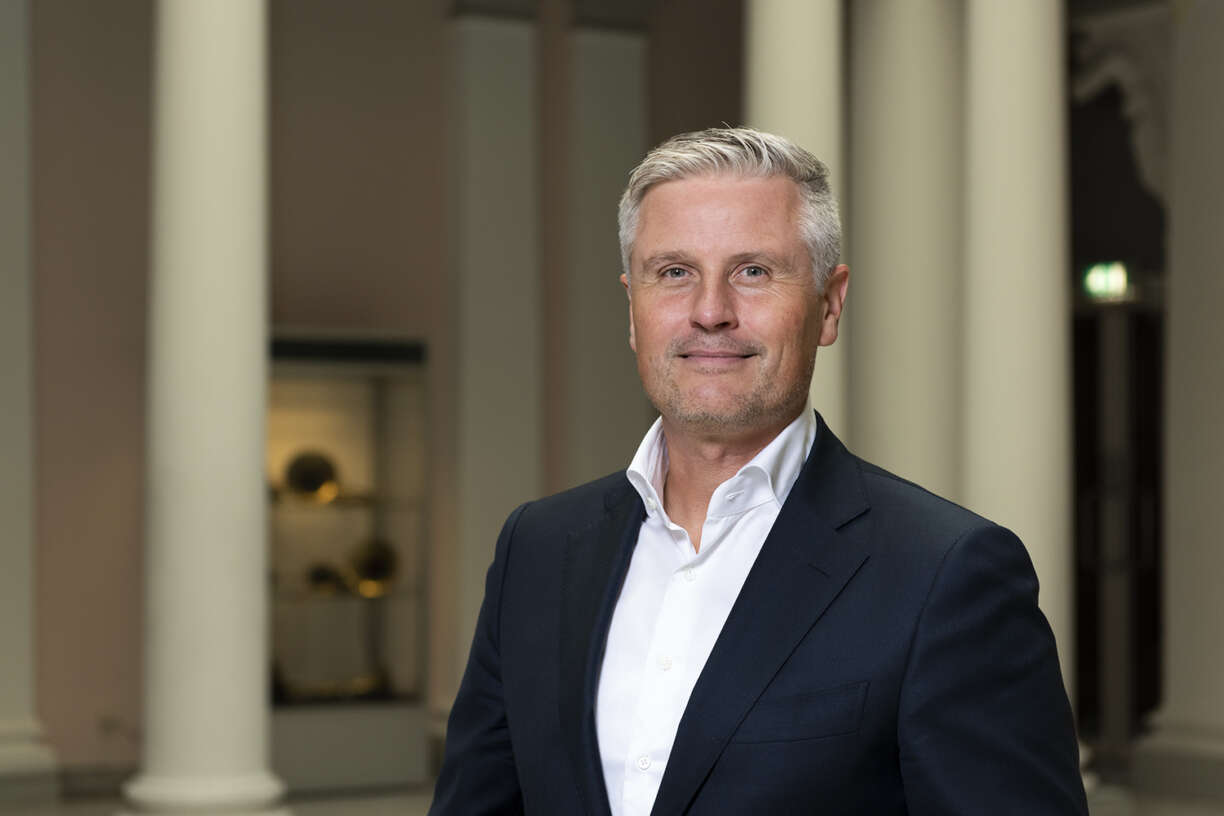April 09, 2025
Open letter to the Executive University Board: Calling for a transformation to digital autonomy

Support our call for a transformation to digital autonomy and sign our open letter
You can sign the open letter here.
We, the undersigned, express our concern about our university’s reliance on services from Big Tech companies (particularly Microsoft, Google, Amazon) for our research, teaching and administrative activities. (1) The University of Amsterdam’s commitment to offer alternatives needs to be prioritized again. Several years ago, the Rectors of the Dutch universities collectively and wisely warned about this. (2) Meanwhile almost all Dutch universities migrated to Big Tech cloud services, at the expense of our internally operated computer centers.
The University of Amsterdam is currently largely dependent on Microsoft Office 365 for all our office work: emailing, writing documents, creating presentations, making video calls, sharing documents and storing our data. Other significant dependencies exist for several key systems at our university. This creates multiple vulnerabilities, especially in the light of a rapidly changing geopolitical situation. (3)
First of all, there are significant security and privacy risks. Access to adopted services rely on authentication services that depend on transatlantic connections, that may be cut at the whims of the American government. In such a situation, all research and teaching would come to an immediate halt. We are also losing control over our data. Microsoft, Google, Zoom and other companies whose services we rely on can be required by law to share our communications, documents, and sensitive (personal) data with US agencies. The fact that the data is stored on European servers offers no (legal) protection (4) and any protections that would be offered can be circumvented by US authorities without transparency.
Apart from these immediate security and privacy concerns, our alternative-less reliance on Big Tech is fundamentally at odds with public values like freedom, independence, autonomy and equality— as pointed out already in 2019 by the Rectors. The digital services we use for our research and teaching are profoundly shaping our professional practices; the incorporation of the newest AI-tools (e.g. co-Pilot) in basic software (e.g. MS Office 365), substantially shape our teaching and research and hence impact our professional autonomy.
Replacement of academic ICT infrastructure with software services from large companies has also changed what universities can offer to their community as well as to society in general. This is because universities increasingly favor corporate ICT and management environments in-house or open source solutions developed for universities. In the process, they loose key capacity and flexibility to manage services beyond what is offered by the dominant companies. This inadvertently creates a preferential environment for the bigger players.
The matters combined transform universities from being a source of technical innovation and knowledge distribution to consumers of services. Or worse, by moving more research practices and associated innovation into the clouds, these companies end up determining the conditions for research, nudging research agendas and outcomes towards implementations in their environments. This means publicly funded research can at times come to entrench the dominance of these few companies into the future.
With this open letter we call upon you to pursue a course towards strategic independence and offering alternatives, thereby reducing this heavy reliance on services from a handful of very large, non-European companies and contributing to greater technological self-determination, resilience and public innovation for and with universities across Europe.
We understand that these developments happened slowly over the years and our university cannot switch to its own IT-infrastructure or rebuild its ICT departments immediately. We therefore ask you to define a point on the horizon and collaboratively define a strategy. We ask you to make our university’s explicit policy goal to significantly reduce our universities’ dependency on Big Tech services in three years time. Universities, in collaboration with each other and SURF, need to work towards technical infrastructures and practices that restore our role in charting democratic and equitable digital futures.
Alternatives to Big Tech offerings — based on non-profit motives, open-source, public values and transparency — do exist and are essential for universities to transform digitally. Importantly, the less we use these alternatives, the more our reliance on Big Tech becomes a self-fulfilling prophecy. Below we list several things which can be done immediately.
- Locally: reverse the ongoing transition to Big Tech and invest in local expertise and deployment, for instance by running our own mail server, and by expanding on the Nextcloud initiative (5), that you already support in the pilot for AlgoSoc.
- Nationally: use your influence within SURF to make the point on the horizon a national goal for the (higher) education sector. Work with your colleagues in the Netherlands to turn universities into an engine of innovation for transformative and equitable digital futures.
- Internationally: work actively with other European universities for an autonomous academic IT-infrastructure that could be a source of innovation and resilience globally.
We have already started a dialogue with our UvA University Board to start moving towards digital resilience and self-determination in academic institutions across Europe and beyond. If you support this strategy, please sign this local petition to show your concerns and bring them to the attention of our university, preferably before April 16, 2025. We hope our initiative will be picked up by colleagues at other universities in The Netherlands to show the broad academic base of our concerns.
Sincerely,
Prof. dr. Natali Helberger (Professor of AI and Law, Co-director AlgoSoc)
Prof. dr. Claes de Vreese (Professor of AI & Society, Co-director AlgoSoc)
Signatories (6 May, 9:00 CET) - 217
- Agustin Ferrari Braun / Faculty of Humanities
- Max van Drunen / Institute for Information Law
- Fabio Votta / ASCoR
- Tom Dobber / Assistant Professor Political Communication & Journalism
- A. Marthe Möller / Assistant Professor of Entertainment Communication
- Thomas Poell / Professor of Media Studies
- Els De Busser / Associate Professor Information Law
- Nathalie van Doorn / Program manager AlgoSoc
- Bert Bakker / Associate Professor, Department of Communication Science
- Penny Sheets Thibaut / Senior Lecturer
- Corinna Oschatz / Amsterdam School of Communication Research
- Felicia Loecherbach / Assistant Professor Political Communication & Journalism
- Ulrike Klinger / Department of Communication Science
- Geert-Jan Meewisse / Not affiliated
- Joris van Hoboken / Professor of Information Law
- Charis Papaevangelou / Institute for Information Law
- Aqsa Farooq / postdoctoral researcher
- Justin Chun-ting Ho / Amsterdam School of Communication Research
- Teresa Weikmann / Postdoctoral Researcher
- Wouter Tebbens
- Marcel van Egmond / Senior Lecturer Communication Science
- Tom van der Meer / Professor of Political Science
- Rutger Helmers / Assistant professor
- Marina Tulin / Assistant Professor Communication Science
- Mathijs Booden / Docent
- Menno den Engelse
- Max Roeleveld
- Tessel Renzenbrink / UvA ulumna
- Jelle Boumans / Lecturer
- Sindy Sumter / Associate professor
- Boudewijn Koopmans employee at IXA / Faculty of Humanities
- Noon Abdulqadir / PhD
- Halil Can Kurban / Postdoc at European Studies
- Tom Schoonen / Assistant Professor Philosophy of AI
- Floor Fiers / Assistant Professor in Communication, Organisations and Society
- Regula Hänggli / Alumni Assistant Professor
- Heleen Janssen / Assistant professor
- Davide Beraldo / Media Studies ILLC
- Lisanne Buik / Visiting lecturer AI ethics
- Thomas Smits / UD
- Klaas Hernamdt / Programme lead Humanities Venture Lab
- Katjana Gattermann / Associate Professor at ASCoR
- Amir Vudka / Assistant professor Media Studies
- Raoul Koudijs / PhD Student
- Marisa Ponti / None
- Mariana Lanari / PhD AHM
- Charles Jeurgens / Professor of Archival Studies
- Khalil Sima'an / Professor, Faculty of Science
- Kim Baraka None / VU
- Sanneke Stigter / Faculty of Humanities
- Marjolein Lanzing / Assistant Professor Philosophy of Technology
- Kimon Kieslich / Postdoctoral Researcher at IViR
- Andrel Linnenbank / Alumnus, student and vaksteunpuntcoordinator bij betapartners
- Ilse van der Linden / PhD candidate
- Jin Wan / AsCoR
- Julia Hoffmann / IAS
- Delfina S. Martinez Pandiani / Media Studies ILLC
- Hannes Cools / Assistant Professor 'Human Factor in New Technologies'
- Abraham Geil / Assistant Professor of Media Studies
- Shivani Kaul / Promovendus and Docent
- Oskar Verkaaik / Associate professor Anthropology
- Ansgar Mohnkern / Assistent Professor
- Josephine van den Bent / Assistant professor
- Lisa Kuitert / Professor Book Studies
- Margriet van Heesch / Department of Sociology
- Joep Onstenk / Docent
- Abbey Steele / Associate Professor, Political Science
- Frank de Morrée / PhD Candidate
- Vincent Kuitenbrouwer / Senior Lecturer History Department
- Ulle Endriss / Professor of AI and Collective Decision Making, ILLC, FNWI
- Theresa Josephine Seipp / Postdoctoral Researcher
- Luc de Groot / Teacher (D4)
- Gavin Mueller / Assistant Professor of New Media and Digital Culture
- Hugo H
- Melvin Wevers / Assistant Professor Digital History
- Tamara Butter / UD
- Lorenzo Grevink / PhD Student
- Laurens Naudts / Postdoctoral Researcher, Institute for Information Law
- Esther Peeren / Professor of Cultural Analysis, Faculty of Humanities
- Annette Freyberg-Inan / Professor, Department of Political Science
- Ryan Jessurun /
- Vera Neplenbroek / PhD Student
- Lukas Koster / PhD candidate ASH
- Linda Duits / Lecturer
- Eloe Kingma / ASCA
- Caroline Roset / lecturer
- Jaap Kooijman / Amsterdam School for Cultural Analysis
- Lars Klute / Lecturer Mediastudies, ASCA PhD Candidate
- Rhys Jones / Assistant Professor in Media Studies
- Rik Spanjers / Assistant professor of Media and Culture
- Stijn Peeters / Assistant Professor, Media Studies
- Niels van Doorn / Associate Professor
- Jan Teurlings / Assistant Professor Media Studies
- Markus Stauff / Associate Professor Media Studies
- Toni Pape / Associate professor Media Studies
- Annet Dekker / Associate professor
- Alex Gekker / Assistant Professor Digital Research Methods
- Nadia Dresscher-Lambertus / ASCA / DMI
- Bjorn Beijnon / PhD
- Timothy Yaczo / Docent Literary and Cultural Analysis
- Alireza Kenari / PhD Candidate
- Diego Caguenas / Assistant Professor in Cultural and Ecological Theory
- Suzanne Biewinga / PHD
- Stefan Niklas / Philosophy Department
- Geert Lovink / Professor of Art and Network Cultures
- Selin Gerlek / assistant professor for philosophy of technology and politics
- Monique Peperkamp / PhD candidate
- Misha Velthuis / Lecturer Sciences Amsterdam University College
- OpenTech (AUC) / Group of lecturers and students that cares about Open Standards, Free Software, and Open Data
- Malvin Gattinger / Assistant Professor, ILLC
- Noa Roei / Assistant Professor
- Paul Baas /
- Jeroen de Kloet / Professor of Globalisation Studies, Department of Media Studies
- Conrado A. Bosman / Assistant Professor, Faculty of Science
- Sruti Bala / Associate Professor Theatre and Performance Studies
- Sebastian De Haro / Institute for Logic, Language and Computation
- Bernhard Rieder / Media Studies
- Michael L. Thomas / Assistant Professor of Philosophy
- Annet Dekker / Associate Professor Archival and Information Studies
- Luca Bertolini / Professor of Urban and Regional Planning
- Tarja Laine / Assistant Professor Film Studies
- Vladimir Nedovic / Former PhD student
- Timo Koren / Assistant Professor, Cultural Studies
- Ivo Verhoeven / PhD Candidate
- Jacob Engelberg / Assistant Professor of Film, Media, and Culture
- Raul Inzaurralde / Research support library
- Nathalie Dijkman-Atria / Director of the Amsterdam Law Hub
- Lonneke van der Velden / Assistant Professor Global Digital Cultures
- Frances Singleton / Head of Research & Innovation; Amsterdam Law Hub
- Elio Attilio Baldi / Universitair Docent
- Siân Brooke / Assistant Professor (MacGillavry Fellowship)
- Alexandros Zakkas / Amsterdam School for Cultural Analysis
- Fernando van der Vlist / Assistant Professor
- Rosa Menkman / PhD student
- Maxigas / Co-PI of the critical infrastructure lab
- Christa-Maria Lerm Hayes / Professor of Modern and Contemporary Art History
- Dr. Corinne Cath / Fellow at the critical infrastructure lab UVA
- Niels ten Oever / Assistant professor
- Nicolas Mattis / Postdoctoral Researcher at ASCoR
- Nanne van Noord / Assistant Professor at the Informatics Institute
- Melika Ayoughi / PhD student
- Giovanni Sileno / IvI/FNWI
- Charles Dupont / PhD Candidate
- Luc Marraffa / PhD Candidate
- Joanna Strycharz / Amsterdam School of Communication Research
- Erik Borra / Assistant professor in Journalism and AI
- Paula M Helm / Media Studies
- Terence Dores Cruz / Postdoctoral Researcher / Behavioral Ethics
- Stefania Milan / Professor of Critical Data Studies
- Christine Erb / Faculty of Humanities
- Margot van der Goot / Senior assistant professor/ Department of Communication Science
- Anushka Mittal / PhD Candidate, IViR
- Julien Rossi / Lecturer
- Wouter van den Bos / Associate Prof. Developmental Psychology
- Petter Törnberg / AI, Culture & Society; ILLC
- Gina Muuss / PhD student
- Martijn Brehm / PhD candidate
- João Nuno Bastos Fonseca / PhD Student
- Abe Hofman / Assistant Prof Psychological Methods
- Floris Roelofsen / Professor at ILLC
- Gerard Wiegers / professor History of Religions
- Valentina Carraro / GPIO
- Damian Trilling / Department of Communication Science
- Plixavra Vogiatzoglou / Postdoctoral researcher
- Giovanni Cinà / Assistant Professor and Institute for Logic, Language and Computation
- Carolin Ischen / Assistant Professor Communication Science
- Ruud Knijn / Employee
- Carolina Maurity Frossard / Assistant Professor
- Jochen Peter / Communication Science
- Andro Rilović / Faculty of Humanities
- Alexander Savi / Assistant Professor
- Yentl de Lange / PhD candidate
- Hülya Altinyelken / Associate Professor, Anthropology
- Lana Askari / Assistant Professor
- Laurens Bakker / docent
- Jeske de Vries / Communication manager
- Jeannette Pols / Prof
- Nicolas Legros / PhD Researcher
- Anne de Jong / Associate professor anthropology
- Kristine Krause / Associate Professor, Department of Anthropology
- Annelies Moors / Professor emerita
- Hasna A. Fadhilah / PhD
- Yatun Sastramidjaja / Associate Professor Anthropology
- David Faber Feenstra / Lecturer in Anthropology
- Anouk de Koning / Professor, anthropology
- Raquel Fernández / Professor at ILLC, Faculty of Science
- Willemijn Krebbekx / Dept of Anthropology
- Linus Mainka / PhD Candidate
- Amade M'charek / Professor Anthropology of Science
- Eelke Heemskerk / Professor of Political Networks
- João Nuno Bastos Fonseca / PhD Student / FNWI / IvI
- Claire Stevenson / Psychological Methods, UvA
- Sanne Vrijenhoek / PhD Candidate
- Micha Heilbron / Assistant Professor of Cognitive AI
- Eric-Jan Wagenmakers / Prof.
- Castor Brouwer / ASCA phd student
- Arjan Vreeken / Informatics Institute
- Roanne van Voorst / Assistant Professor in Anthropology
- Rachel Spronk / Professor of Anthropology
- Denny Borsboom / Professor of Psychological Methods
- Nicolas Resch / Assistant Professor
- Manideep Mamindlapally / PhD student
- Anthony Guevara / PhD candidate
- Bengi Zeybek / PhD Researcher
- Silvia Goddijn / Business Developer SSH IXA UvA
- L. Thomas van Binsbergen / Assistant Professor, Informatics Institute
- Thomas Koopman / Research Software Engineer
- Mateja Kunstelj / no affiliation
- Alice Fleerackers / Assistant Professor of Journalism and Civic Engagement, Department of Media Studies
- Daniel Mügge / Professor of Political Arithmetic, FMG
- Artemis Song / PhD Candidate, IvI
- Raquel Garrido Alhama / Assistant Professor
- Annelieke Driessen / Department of Anthropology
- Isabella Banks / Institute for Information Law
- Charlotte van der Veen / PhD candidate
- Gerben Ter Riet / Associate professor of epidemiology, Amsterdam University Medical Center
- Alexandra Cosmina Rosca / Lecturer in Communication Science
Notes
- This is a national version of a petition that was initiated by Jaap-Henk Hoekman, Bart Jacobs and Tamar Sharon from Radboud University Nijmegen (RUN) who launched an Open Letter/Petition that was quickly signed by more than 500 employees.
- Rectores magnifici van de Nederlandse universiteiten: “Digitalisering bedreigt onze universiteit. Het is tijd om een grens te trekken”, de Volkskrant, December 22, 2019. https://www.volkskrant.nl/colu...
- A. Meijer & J. van Dijck, “Universiteit, maak je los van Big Tech”, Trouw, February 23, 2025. https://www.trouw.nl/opinie/op...
- Because of the U.S. CLOUD Act. See e.g. https://iapp.org/news/a/questi...
- Pilot with NextCloud, supported by SURF. See: https://communities.surf.nl/pu...
More results /
 Je medisch dossier inladen in nieuwe functie ChatGPT? Denk 10.000 keer na
Je medisch dossier inladen in nieuwe functie ChatGPT? Denk 10.000 keer na
By Natali Helberger • January 19, 2026
By Roel Dobbe • November 24, 2025
By Roel Dobbe • November 12, 2025
 Combatting financial crime with AI at the crossroads of the revised EU AML/CFT regime and the AI Act
Combatting financial crime with AI at the crossroads of the revised EU AML/CFT regime and the AI Act
By Magdalena Brewczyńska • January 16, 2026
By Sabrina Kutscher • July 02, 2025
By Natali Helberger • March 06, 2025
By Maurits Kaptein • June 06, 2025
By Leonie Westerbeek • November 22, 2024
 Clouded Judgments: Problematizing Cloud Infrastructures for News Media Companies
Clouded Judgments: Problematizing Cloud Infrastructures for News Media Companies
By Agustin Ferrari Braun • January 29, 2026
By Fabio Votta • November 05, 2025
By Ernesto de León • Fabio Votta • Theo Araujo • Claes de Vreese • October 28, 2025







